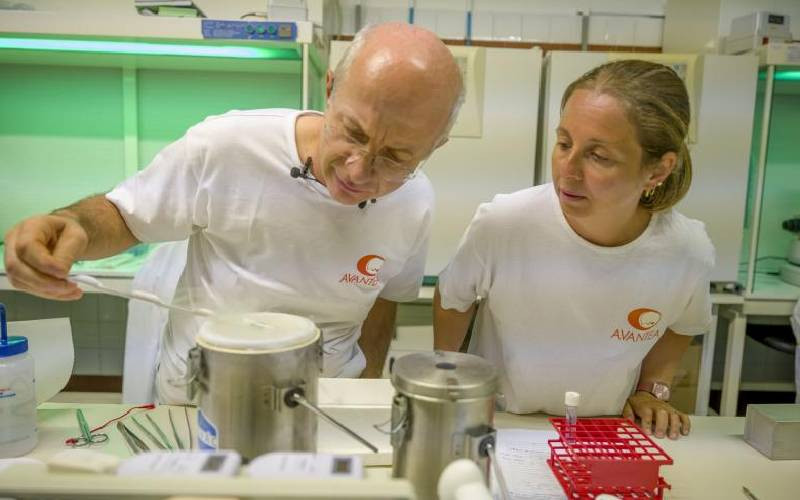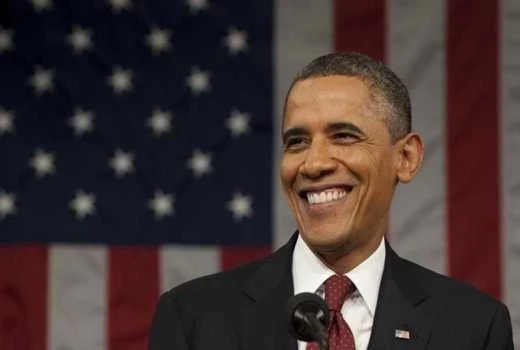WASHINGTON, Monday
President Barack Obama will lift his predecessor's restriction on federal funding of human embryonic stem cell research on Monday and will give the National Institutes of Health four months to come up with new rules on the issue, officials said on Sunday.
Obama will not lay out guidelines himself but will let the NIH decide when it is ethical and legal to pay for embryonic stem cell research, science adviser Dr Harold Varmus said.
Researchers and advocates have been invited to a White House ceremony at which Obama will make the announcement, said Melody Barnes, director of Obama's domestic policy council. He will also sign a pledge to "restore scientific integrity in governmental decision making," Barnes said.
"He believes that by signing them he's going to continue to fulfill the promises that he made over the 20-plus months on the campaign," Barnes told reporters in a conference call.
"And the president believes that it's particularly important to sign this memorandum so that we can put science and technology back at the heart of achieving a broad range of national goals."
Former President George W. Bush was accused by scientists and politicians of injecting politics and sometimes religion into scientific decisions regarding not only stem cells, but climate change policy, energy policy and contraceptive policy.
Barnes said scrapping the restriction on federal funding imposed by Bush would help to create jobs and strengthen national security.
Varmus said Obama will give the NIH 120 days come up with a framework to govern the use of federal funds to work with human embryonic stem cells.
Limited use
A law called the Dickey Amendment limits the use of federal money to actually make the powerful stem cells, because they must be taken from human embryos. So federal research money can currently be used only to work with cells that were made using other sources of funds.
"The president, in effect, is allowing federal funding on human embryonic stem cells research to the extent that is allowed by law," said Varmus, a former NIH director who is also president of the Memorial Sloan-Kettering Cancer Center in New York and an adviser to Obama.
"There will be no explicit attempt to draw up what those guidelines will be," Varmus added.
Researchers are delighted.
"Hallelujah! This marks the end of a long and repressive chapter in scientific history. It's the stem cell 'emancipation proclamation'," said Dr Robert Lanza of Advanced Cell Technology in Massachusetts.
Stay informed. Subscribe to our newsletter
"I really hope this is the end of this political football game," agreed Michael West, who once headed ACT and Geron Inc and is now chief executive officer of a California-based biotech firm called BioTime.
Stem cells are primitive, long-living cells that are the source of all other cells in the body. When taken from days-old embryos they are virtually immortal and can give rise to all the other cells and tissues in the body.
Supporters say they can transform medicine and have been working to use them to repair severed spinal cords, regenerate brain cells lost in cases of Parkinson's Disease and restore the tissue destroyed by juvenile diabetes.
Dr Douglas Melton, co-director of the Harvard Stem Cell Institute, noted that the process of getting federal funding itself is time-consuming but said his group will seek the cash alongside its other sources of money.
"The removal of this barrier that has stood in our way for eight years will open important new areas of research, and help in moving the field forward more rapidly," Melton said.
Although support for federal funding of human stem cell research crosses political and philosophical boundaries, opponents remain.
"Taxpayer dollars should not aid the destruction of innocent human life," said House of Representatives Republican leader John Boehner of Ohio. (Reuters)
 The Standard Group Plc is a
multi-media organization with investments in media platforms spanning newspaper
print operations, television, radio broadcasting, digital and online services. The
Standard Group is recognized as a leading multi-media house in Kenya with a key
influence in matters of national and international interest.
The Standard Group Plc is a
multi-media organization with investments in media platforms spanning newspaper
print operations, television, radio broadcasting, digital and online services. The
Standard Group is recognized as a leading multi-media house in Kenya with a key
influence in matters of national and international interest.
 The Standard Group Plc is a
multi-media organization with investments in media platforms spanning newspaper
print operations, television, radio broadcasting, digital and online services. The
Standard Group is recognized as a leading multi-media house in Kenya with a key
influence in matters of national and international interest.
The Standard Group Plc is a
multi-media organization with investments in media platforms spanning newspaper
print operations, television, radio broadcasting, digital and online services. The
Standard Group is recognized as a leading multi-media house in Kenya with a key
influence in matters of national and international interest.








